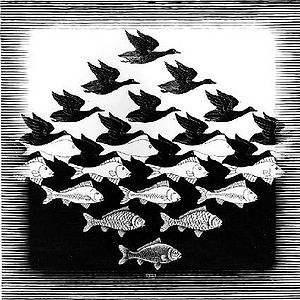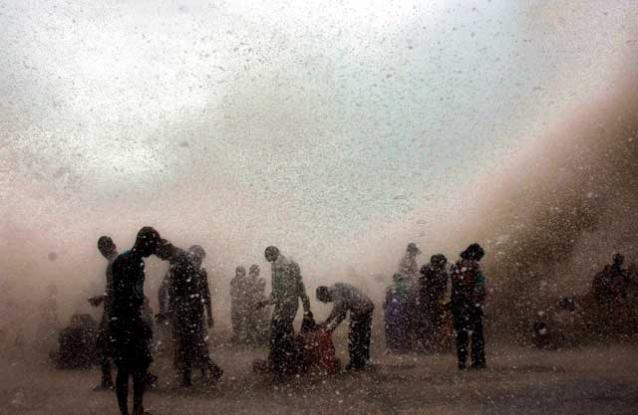The week that was, 1/31/2010-2/6/2010
Posted on | February 7, 2010 | No Comments
that seems to have a mind (and
change it: isn’t that what makes
a mind, its changing?) not much
prone to thinking – rather, thoughts
curl through it, salt or fresh, or hang
between states; sometimes gloss
the surface with their oil-illuminations.
Wind-worried to dullness, pulled two ways
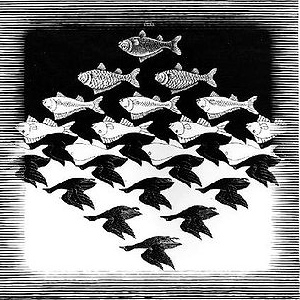 (earth and moon like parents not quite
(earth and moon like parents not quite
in accord), unquiet body, it can never
quite lay down its silt; always trying
to be something other, to be sky,
to lose itself in absolute reflection.
*
— “Betweenland 1,” an extract from “The Water Table” by Philip Gross, Financial Times, February 6, 2010
*
*
It’s the winds that bring it. They come in from the east, a cool rush that lifts the dust of a long dry summer and a lock of hair from your head. You lift your head, too, and the air darkens; a shift in pressure that strokes its way down your back. You didn’t realize how taut the air was until now. A rumble, a crack, the splashdown of a heavy droplet as big as a fingertip and then it’s on you. Words drown in the roar of water streaming through gutters and rushing through streets. At night, flashes of lightening turn mouldering skies an electric, quasar purple. This is a weather event. — Grace Boyle in the London Independent, “Best for weather-watching: India,” February 6, 2010
It’s a privilege to pee. — A lyric from “Urinetown,” performed by Chaparral High School in Scottsdale, Arizona, “WaterBlogged,” February 5, 2010
Water is just way too cheap. — “Liquid asset: Pricing water is politically sensitive,” Wall Street Journal, February 3, 2010
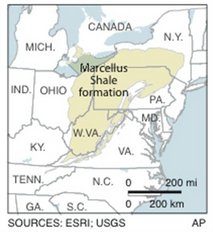
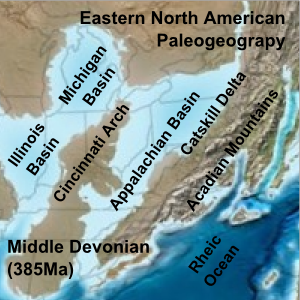 “Everybody and his brother is trying to come up with the 11 herbs and spices.” — Nicholas DeMarco, executive director of the West Virginia Oil and Natural Gas Association on the undisclosed chemicals used in natural gas production and thought to pose a risk to public water supplies in the Marcellus Shale, “Gas drilling in Appalachia yields a foul byproduct,” Associated Press, February 2, 2010
“Everybody and his brother is trying to come up with the 11 herbs and spices.” — Nicholas DeMarco, executive director of the West Virginia Oil and Natural Gas Association on the undisclosed chemicals used in natural gas production and thought to pose a risk to public water supplies in the Marcellus Shale, “Gas drilling in Appalachia yields a foul byproduct,” Associated Press, February 2, 2010
“So, we took Colorado’s money and blew it?” — Kansas state senator Janis Lee, “Gaffe depletes water legal fund,” Topeka Capital-Journal, February 1, 2010
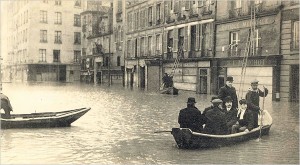 The city’s Roman name, Lutetia, is said to derive from the Latin word for mud (lutum) … — “1910: The year that Paris nearly drowned,” International Herald Tribune, February 2, 2010, via ProQuest
The city’s Roman name, Lutetia, is said to derive from the Latin word for mud (lutum) … — “1910: The year that Paris nearly drowned,” International Herald Tribune, February 2, 2010, via ProQuest
“We need to hear about your trees, your woods, your meadows. What is your property already doing?” — Joanne Dahme, public affairs manager for the Philadelphia water department’s Office of Watersheds
“A ‘green‘ city plan to reduce storm water run–off,” Philadelphia Inquirer, February 5, 2010
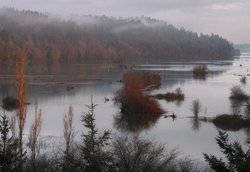 “Water is really taking over.” — Nisqually National Wildlife Refuge manager Jean Takekawa, “Tides rechanneling Nisqually River,” the Tacoma News Tribune, February 6, 2010
“Water is really taking over.” — Nisqually National Wildlife Refuge manager Jean Takekawa, “Tides rechanneling Nisqually River,” the Tacoma News Tribune, February 6, 2010
“I’m surprised by the number of people that flipped on me in the last day.” — Colorado General Assembly Rep Hal Pace on his bid to secure mitigation in water transfers, “Pace’s water transfer bill dies on House floor,” Pueblo Chieftan, February 6, 2010
Of the 160 lakes being continuously monitored by [the amateur naturalists], 40 have completely disappeared in the last 10 years . . . — “Water fowl census shows alarming decline,” The Hindu, February 6, 2010
 “You drop some water on something with a smooth surface. Then you put something with a rough surface next to it. Guess what happens? The water moves to the rough surface. This is how spider silk captures water. A force is at work between rough and smooth surfaces. It pushes water from the smooth surface to the rough and lets it concentrate there to finally form a droplet we can see. It is not gravity. The droplets are too small to be affected by it. It is a mysterious force. The world of nano science is full of magic.” — Dr Zheng Yongmei, associate professor at Beihang University’s school of chemistry, describing his work on the water-holding capability of spider silk, which snared the cover of Nature magazine, “Scientists solve wet web of intrigue,” South China Morning Post, February 5, 2010, via ProQuest
“You drop some water on something with a smooth surface. Then you put something with a rough surface next to it. Guess what happens? The water moves to the rough surface. This is how spider silk captures water. A force is at work between rough and smooth surfaces. It pushes water from the smooth surface to the rough and lets it concentrate there to finally form a droplet we can see. It is not gravity. The droplets are too small to be affected by it. It is a mysterious force. The world of nano science is full of magic.” — Dr Zheng Yongmei, associate professor at Beihang University’s school of chemistry, describing his work on the water-holding capability of spider silk, which snared the cover of Nature magazine, “Scientists solve wet web of intrigue,” South China Morning Post, February 5, 2010, via ProQuest
“I think the phrase is ‘an abundance of caution.’ ” — Southern Nevada Water Authority spokesman JC Davis on why his agency re-filed more than 100 claims for Great Basin groundwater after the continued validity of the filings was thrown into doubt by a state supreme court ruling, “State engineer fears ‘chaos’ from high court water ruling,” Las Vegas Review-Journal, February 3, 2010
“Prudent is probably a better word than caution.” — John Entsminger, deputy counsel for the Southern Nevada Water Authority, adjusting the phrasing of a company spokesman on why his agency re-filed more than 100 claims for Great Basin groundwater after the continued validity of the filings was thrown into doubt by a state supreme court ruling, “State engineer fears ‘chaos’ from high court water ruling,” Las Vegas Review-Journal, February 3, 2010
“What is shaping up here is a nasty primary pitting a candidate supported by west side farmers vs. candidates supported by east side farmers.” — Tom Holyoke, assistant professor of political science at California State University, Fresno, “Water splits San Joaquin Valley farm vote for congressman,” Modesto Bee, January 31, 2010
 We have a right to our river and we want it back. — Lois Henry ‘No holds barred,’ Bakersfield Californian, February 2, 2010
We have a right to our river and we want it back. — Lois Henry ‘No holds barred,’ Bakersfield Californian, February 2, 2010
“We’re all still pretty much in a head-scratching mode about what to do.” — Steve Brown, executive director of the Environmental Council of the States, on how budget shortfalls state-to-state may undermine compliance with federal environmental standards, “States struggling with EPA rules,” USA Today, February 3, 2010
“Under the federal rules, the more it rains, the more water we lose.” — Tom Birmingham, general manager of Westlands Water District on Bay-Delta pumping restrictions designed to protect migrating salmon, “Water agencies head to court to ask for relief from Delta protections,” Contra Costa Times, February 1, 2010
” . . . the winter-run [salmon] are on the move and more of them can be expected in February.” — US Department of Justice attorney Bridget Kennedy McNeil, “Water groups fight salmon plan in court,” Fresno Bee, February 2, 2010
 “I am elated that Judge Wanger issued this order.” — Tom Birmingham, general manager of Westlands Water District on the lifting of pumping restrictions designed to protect salmon, “Fresno water ruling frees up water supply,” Fresno Bee, February 5, 2010
“I am elated that Judge Wanger issued this order.” — Tom Birmingham, general manager of Westlands Water District on the lifting of pumping restrictions designed to protect salmon, “Fresno water ruling frees up water supply,” Fresno Bee, February 5, 2010
“What’s the point in continuing in this long-term solution under the Bay-Delta Conservation Plan if actions are taken that will directly harm the salmon in the short term?” — Ann Hayden, water policy analyst at the Environmental Defense Fund, “Judge relaxes Delta salmon rules,” Contra Costa Times, February 5, 2010
“I see a willingness. I see actually an intent on Alabama and Florida’s parts to come together with us for reasonable solutions.” — Georgia governor Sonny Perdue, “Perdue backs water conservation legislation, study of building new reservoirs,” Atlanta Journal-Constitution, February 3, 2010
“There’s no reason to wash your car with treated drinking water.” — Josh Ellis, a program associate at the Metropolitan Planning Council in Chicago, “Conservation needed to prevent drain on water reserves,” Chicago Tribune, February 2, 2010
This posting was updated an hour after publication. The items about the Philadelphia storm water program and Nisqually Wildlife refuge were added.
Correction: Early versions of this post carried a misprint of the Gross poem in which the last line appeared twice. My apologies to the poet and to those who might have thought that it was “just them” in finding the incorrect version a bit repetitious.
Comments
Leave a Reply
